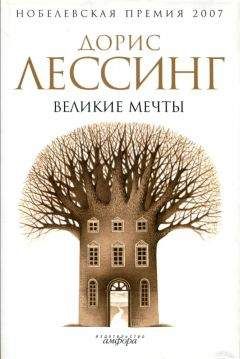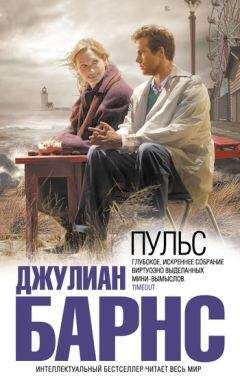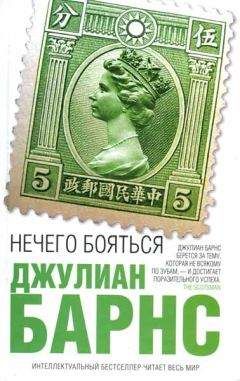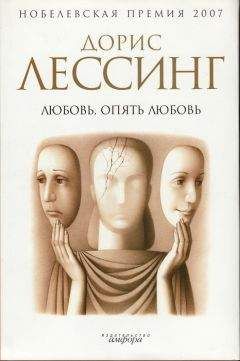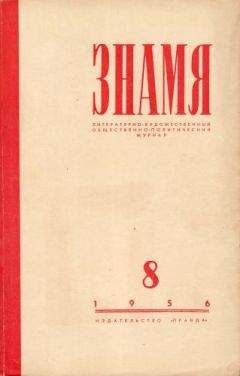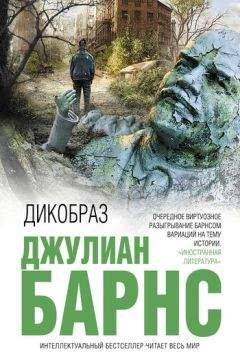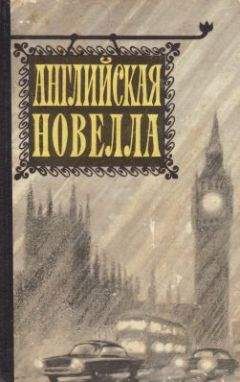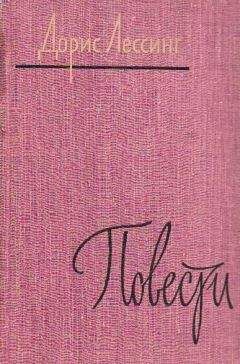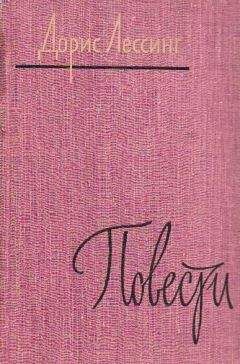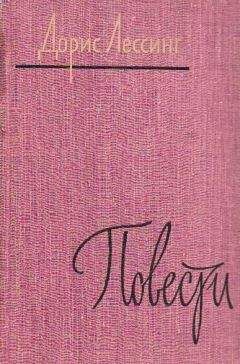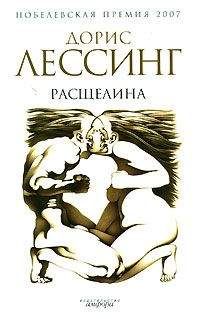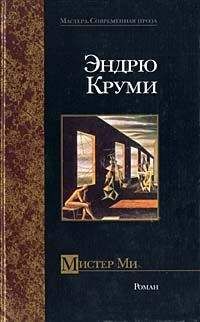Дорис Лессинг - Англия и Англия

Скачивание начинается... Если скачивание не началось автоматически, пожалуйста нажмите на эту ссылку.
Жалоба
Напишите нам, и мы в срочном порядке примем меры.
Описание книги "Англия и Англия"
Описание и краткое содержание "Англия и Англия" читать бесплатно онлайн.
Рассказ на тему о стирании социальных различий в сегодняшней Британии, о превращении рабочего в представителя профессии «чистого воротничка». Интеграция классов, как об этом пишет западная социология? Нет, отвечает Лессинг, не безболезненная интеграция, а выламывание из класса, насильственное выдирание с корнями, и сопряжено оно с такими нравственными и психологическими издержками, что вряд ли их окупает. Тема рабочей гордости, рабочего достоинства, тема врожденной доброты людей труда определяет в конечном счете основную интонацию рассказа Лессинг «Англия и Англия».
'Sorry I've not had more time with you, son, said Mr Thornton, 'but you know how 'tis.
The old miner had been union secretary, was now chairman, and had spent his working life as miners' representative in a dozen capacities. When he walked through the village, men at a back door, or a woman in an apron, called: 'Just a minute, Bill, and came after him. Every evening Mr Thornton sat in the kitchen, or in the parlour when the television was claimed by the children, giving advice about pensions, claims, work rules, allowances; filling in forms; listening to tales of trouble. Ever since Charlie could remember, Mr Thornton had been less his father than the father of the village. Now the three miners went into the parlour, and Mr Thornton laid his hand on his son's shoulder, and said: 'It's been good seeing you, nodded, and followed them. As he shut the door he said to his wife: 'Make us a cup of tea, will you, lass?
'There's time for a cup, Charlie, said the mother, meaning there was no need for him to rush off now, when it was unlikely any more neighbours would come in. Charlie did not hear. He was watching her slosh dirty potatoes about under the running tap while with her free hand she reached for the kettle. He went to fetch his raincoat and his holdall listening to the nagging inner voice which he hated, but which he felt as his only protection against the spiteful enemy outside: 'I can't stand it when my father apologizes to me — he was apologizing to me for not seeing more of me. If he wasn't as he is, better than anyone else in the village, and our home the only house with real books in it, I wouldn't be at Oxford, I wouldn't have done well at school, so it cuts both ways. The words, cut both ways, echoed uncannily in his inner ear, and he felt queasy, as if the earth he stood on was shaking. His eyes cleared on the sight of his mother, standing in front of him, her shrewd, non-judging gaze on his face. 'Eh, lad, she said, 'you don't look any too good to me. I'm all right, he said hastily, and kissed her, adding: 'Say my piece to the girls when they come in. He went out, with Lennie behind him.
The two youths walked in silence past fifty crammed lively brightly lit kitchens whose doors kept opening as the miners came in from the pit for their tea. They walked in silence along the front of fifty more houses. The fronts were all dark. The life of the village, even now, was in the kitchens where great fires roared all day on the cheap coal. The village had been built in the thirties by the company, now nationalized. There were two thousand houses, exactly alike, with identical patches of carefully tended front garden, and busy back yards. Nearly every house had a television aerial. From every chimney poured black smoke.
At the bus stop Charlie turned to look back at the village, now a low hollow of black, streaked and spattered with sullen wet lights. He tried to isolate the gleam from his own home, while he thought how he loved his home and how he hated the village. Everything about it offended him, vet as soon as he stepped inside his kitchen he was received into warmth. That morning he had stood on the front step and looked out on lines of grey stucco houses on either side of grey tarmac; on grey ugly lamp-posts and greyish hedges, and beyond to the grey minetip and the neat black diagram of the minehead.
He had looked, listening while the painful inner voice lectured: 'There nothing in sight, not one object or building anywhere, that is beautiful. Everything is so ugly and mean and graceless that it should be bulldozed into the earth and out of the memory of man. There was not even a cinema. There was a post office, and attached to it a library that had romances and war stories. There were two miners' clubs for drinking. And there was television. These were the amenities for two thousand families.
When Mr Thornton stood on his front step and looked forth he smiled with pride and called his children to say: 'You've never seen what a miners' town can be like. You couldn't even imagine the conditions. Slums, that's what they used to be. Well, we've put an end to all that… Yes, off you go to Doncaster, I suppose, dancing and the pictures — that's all you can think about. And you take it all for granted. Now, in our time…
And so when Charlie visited his home he was careful that none of his bitter criticisms reached words, for above all, he could not bear to hurt his father.
A group of young miners came along for the bus. They wore smartly shouldered suits, their caps set at angles, and scarves flung back over their shoulders. They greeted Lennie, looked to see who the stranger was, and when Lennie said: 'This is my brother, they nodded and turned quickly to board the bus. They went upstairs, and Lennie and Charlie went to the front downstairs. Lennie looked like them, with a strong cloth cap and a jaunty scarf. He was short, stocky, strong — 'built for t'pit', Mr Thornton said. But Lennie was in a foundry in Doncaster. No pit for him, he said. He had heard his father coughing through all the nights of his childhood, and the pit wasn't for him. But he had never said this to his father.
Lennie was twenty. He earned seventeen pounds a week, and wanted to marry a girl he had been courting for three years now. But he could not marry until the big brother was through college. The father was still on the coal face, when by rights of age he should have been on the surface, because he earned four pounds a week more on the face. The sister in the office had wanted to be a schoolteacher, but at the moment of decision all the extra money of the family had been needed for Charlie. It cost them two hundred pounds a year for his extras at Oxford. The only members of the family not making sacrifices for Charlie were the schoolgirl and the mother.
It was half an hour on the bus, and Charlie's muscles were set hard in readiness for what Lennie might say, which must be resisted. Yet he had come home thinking: Well, at least I can talk it out with Lennie, I can be honest with him.
Now Lennie said facetiously, but with an anxious loving inspection of his brother's face: And what for do we owe the pleasure of your company, Charlie boy? You could have knocked us all down with a feather when you said you were coming this weekend.
Charlie said angrily: 'I got fed up with t'earls and t'dukes.
'Eh, said Lennie quickly, 'but you didn't need to mind them, they didn't mean to rile you.
'I know they didn't.
'Mum's right, said Lennie, with another anxious but carefully brief glance, 'you're not looking too good. What's up?
'What it I don't pass ^examinations, said Charlie in a rush.
'Eh, but what is this, then? You were always first in school. You were the best of everyone. Why shouldn't you pass, then?
'Sometimes I think I won't, said Charlie lamely, but glad he had let the moment pass.
Lennie examined him again, this time frankly, and gave a movement like a shrug. But it was a hunching of the shoulders against a possible defeat. He sat hunched, his big hands on his knees. On his face was a small critical grin. Not critical of Charlie, not at all, but of life.
His heart beating painfully with guilt, Charlie said: 'It's not as bad as that, I'll pass. The inner enemy remarked softly: I'll pass, then I'll get a nice pansy job in a publisher's office with the other wet-nosed little boys, or I'll be a sort of clerk. Or I'll be a teacher — I've no talent for teaching, but what's that matter? Or I'll be on the management side of industry, pushing people like Lennie around. And the joke is, Lennie's earning more than I shall for years. The enemy behind his right shoulder began satirically tolling a bell and intoned: 'Charlie Thornton, in his third year at Oxford, was found dead in a gas-filled bed-sitting room this morning. He had been overworking. Death from natural causes. The enemy added a loud' rude raspberry and fell silent. But he was waiting: Charlie could feel him there waiting.
Lennie said: 'Seen a doctor, Charlie boy?
'Yes. He said I should take it easy a bit. That's why I came home.
'No point killing yourself working.
'No, it's not serious, he just said I must take it easy.
Lennie's face remained grave. Charlie knew that when he got home he would say to the mother: 'I think Charlie's got summat on his mind. And his mother would say (while she stood shaking chips of potato into boiling fat): 'I expect sometimes he wonders is the grind worth it. And he sees you earning, when he isn't. She would say, after a silence during which they exchanged careful looks: 'It must be hard for him, coming here, everything different, then off he goes, everything different again.
'Shouldn't worn', Mum.
'I'm not worrying. Charlie's all right.
The inner voice inquired anxiously: 'If she's on the spot about the rest, I suppose she's right about the last bit too — i suppose i am all right?
But the enemy behind his right shoulder said: A man's best friend is his mother, she never lets a thing pass.
Last year he had brought Jenny down for a weekend, to satisfy the family's friendly curiosity about the posh people he knew these days. Jenny was a poor clergyman's daughter, bookish, a bit of a prig, but a nice girl. She had easily navigated the complicated currents of the weekend, while the family waited for her to put on 'side'. Afterwards Mrs Thornton had said, putting her finger on the sore spot: 'That's a right nice girl. She's a proper mother to you, and that's a fact. The last was not a criticism of the girl, but of Charlie. Now Charlie looked with envy at Lennie's responsible profile and said to himself: Yes, he's a man. He has been for years, since he left school. Me, I'm a proper baby, and I've got two years over him.
For above everything else, Charlie was made to feel, everytime he came home, that these people, his people, were serious; while he and the people with whom he would now spend his life (if he passed the examination) were not serious. He did not believe this. The inner didactic voice made short work of any such idea. The outer enemy could, and did, parody it in a hundred ways. His family did not believe it, they were proud of him. Yet Charlie felt it in everything they said and did. They protected him. They sheltered him. And above all, they still paid for him. At his age, his father had been working in the pit for eight years.
Lennie would be married next year. He already talked of a family. He, Charlie (if he passed the examination), would be running around licking peoples arses to get a job, Bachelor of Arts, Oxford, and a drug on the market.
They had reached Doncaster. It was raining. Soon they would pass where Doreen, Lennie's girl, worked. 'You'd better get off here, Charlie said. 'You'll have all that drag back through the wet. 'No, sail right, I'll come with you to the station.
There were another five minutes to go. 'I don't think it's right, the way you get at Mum, Lennie said, at last coming to the point.
'But I haven't said a bloody word, said Charlie, switching without having intended it into his other voice, the middle-class voice which he was careful never to use with his family except in joke. Lennie gave him a glance of surprise and reproach and said: All the same. She feels it.
'But it's bloody ridiculous. Charlie's voice was rising. 'She stands in that kitchen all day, pandering to our every whim, when she's not doing housework or making a hundred trips a day with that bloody coal… In the Christmas holidays, when Charlie had visited home last, he had fixed up a bucket on the frame of an old pram to ease his mother's work. This morning he had seen the contrivance collapsed and full of rainwater in the back yard. After breakfast Lennie and Charlie had sat at the table in their shirtsleeves watching their mother. The door was open into the back yard. Mrs Thornton carried a shovel whose blade was nine inches by ten, and was walking back and forth from the coalhole in the yard, through the kitchen, into the parlour. On each inward journey, a small clump of coal balanced on the shovel. Charlie counted that his mother walked from the coalhole to the kitchen fire and the parlour fire thirty-six times. She walked steadily, the shovel in front, held like a spear in both hands, and her face frowned with purpose. Charlie had dropped his head on to his arms and laughed soundlessly until he felt Lennies warning gaze and stopped the heave of his shoulders. After a moment he had sat up, straight-faced. Lennie said: 'Why do you get at Mum, then? Charlie said: 'But I haven't. said owt. 'No, but she's getting riled. You always show what you think, Charlie boy. As Charlie did not respond to his appeal — for far more than present charity — Lennie went on: 'You can't teach an old dog new tricks. 'Old! She's not fifty!
Now Charlie said, continuing the early conversation: 'She goes on as if she were an old woman. She wears herself Out with nothing — she could get through all the work she has in a couple of hours if she organized herself. Or if just for once she told us where to get off.
'What'd she do with herself then?
'Do? Well, she could do something for herself. Read. Or see friends. Or something.
'She feels it. Last time you went off she cried.
'She what? Charlie's guilt almost overpowered him, but the inner didactic voice switched on in time and he spoke through it: What right have we to treat her like a bloody servant? Betty likes her food this way and that way, and Dad won't eat this and that, and she stands there and humours the lot of us — like a servant.
And who was it last night said he wouldn't have fat on his meat and changed it for hers? said Lennie smiling, but full of reproach.
'Oh, I'm just as bad as the rest of you, said Charlie, sounding false. 'It makes me wild to see it, he said, sounding sincere. Didactically he said: All the women in the village — they take it for granted. If someone organized them so that they had half a day to themselves sometimes, they'd think they were being insulted — they can't stop working. Just look at Mum, then. She comes into Doncaster to wrap sweets two or three times a week — well, she actually loses money on it, by the time she's paid bus fares. I said to her, 'You're actually losing money on it," and she said: "I like to get out and see a bit of life." A bit of life! Wrapping sweets in a bloody factory. Why can't she just come into town of an evening and have a bit of fun without feeling she has to pay for it by wrapping sweets, sweated bloody labour? And she actually loses on it. It doesn't make sense. They're human beings, aren't they? Not just…
'Not just what? asked Lennie angrily. He had listened to Charlie's tirade, his mouth setting harder, his eyes narrowing. 'Here's the station, he said in relief. They waited for the young miners to clatter down and off before going forward themselves. "I'll come with you to your stop, said Charlie; and they crossed the dark shiny, grimy street to the opposite stop for the bus which would take Lennie back to Doreen.
'It's no good thinking we're going to change, Charlie boy.
'Who said change? said Charlie excitedly; but the bus had come, and Lennie was already swinging on to the back. 'If you're in trouble just write and say, said Lennie, and the bell pinged and his face vanished as the lit bus was absorbed by the light-streaked drizzling darkness.
Подписывайтесь на наши страницы в социальных сетях.
Будьте в курсе последних книжных новинок, комментируйте, обсуждайте. Мы ждём Вас!
Похожие книги на "Англия и Англия"
Книги похожие на "Англия и Англия" читать онлайн или скачать бесплатно полные версии.
Мы рекомендуем Вам зарегистрироваться либо войти на сайт под своим именем.
Отзывы о "Дорис Лессинг - Англия и Англия"
Отзывы читателей о книге "Англия и Англия", комментарии и мнения людей о произведении.








